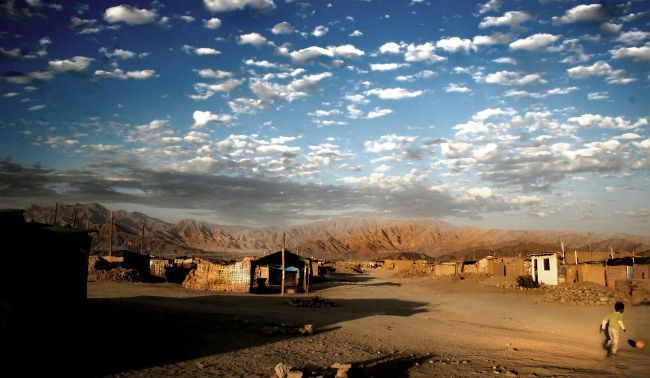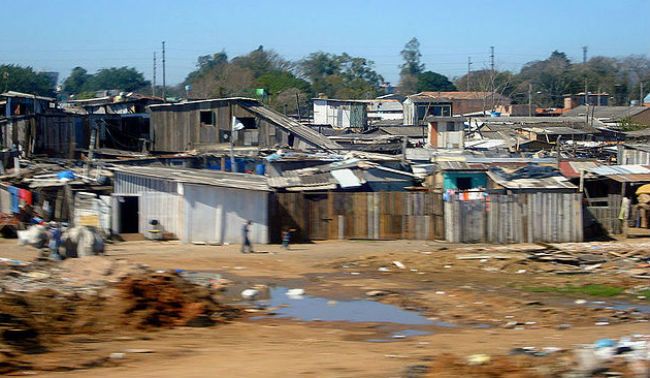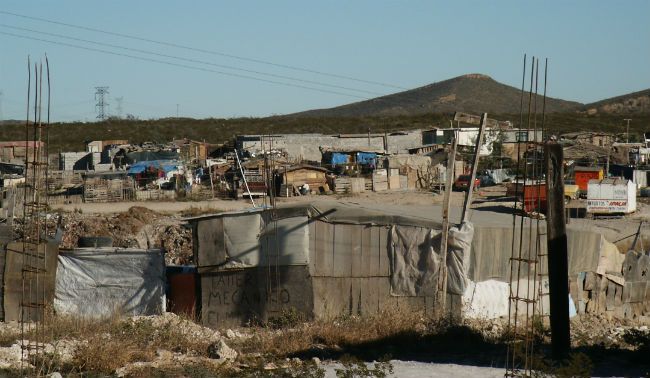Sometimes when I think about global poverty, it seems like an impossibility to solve such a massive epidemic. But then I remind myself of the AMAZING strides that have been made over the past twenty years - thanks to the Millennium Development Goals (MDGs) the poverty rate has been cut in half since 1990!
Case-in-point of the progress that has been made can be seen in Latin America and the Caribbean. The region has made remarkable strides in getting millions over the poverty line in the last decade. Largely, this decline in poverty was possible thanks to the economic growth that has flourished in the region.
For me, I have often thought that the equation to solve poverty is simple - make countries wealthier, and impoverishment is sure to decline. Right?! Turns out this assessment, according to a recent report produced by the World Bank debunks my thinking as waaaayyyy too simplistic.

Photo: Graeme Law/Flickr | Child playing with ball in Ica, Peru
The bank’s report titled “Left Behind,” says that within Latin American and the Caribbean, despite increased inequality and wealth in the region over the past decade, roughly 130 million people are still subsisting on less than the equivalent of $4 USD a day (it’s A LOT of people).
The World Bank’s report argues that, “economic growth was not sufficient to lift the chronic poor out of poverty” in Latin America and the Caribbean. Or, to break it down further, while economic growth can be transformative to countries’ citizens, it doesn’t matter how wealthy a nation is, if there aren’t systematic efforts to help individuals living in chronic poverty (i.e.: individuals who consistently, and historically, live below the poverty line).

Photo: Wiki Commons | Favelas Porte Alegre, Brazil
The report cites that one in every five people in Latin America experience chronically poor. But some countries within the region are experiencing a disproportionate amount of hardship. The Central American nations of Nicaragua, Honduras, and Guatemala have a chronic poverty rate that is far higher than the regional average – half of the population in Guatemala and more than 40 percent of people in Honduras are chronically impoverished.
What’s interesting is that while it may seem that poverty is contained to specific nations or regions, the impact of impoverishment deeply affects global politics. Take for examples the United States recently witnessing the mass immigration of young unaccompanied children. Children, who by and large, were fleeing poverty and gang violence in their home countries of El Salvador, Honduras, and Guatemala. While the reasons for these children’s departure from their nation’s of origin is complex, The United Nations High Commissioner for Refugees (UNHCR) cites that many unaccompanied children are seeking economic opportunities in the US.

Photo: Wiki Commons | Shanty town in Ramos Arizpe, Mexico
The plight of unaccompanied minors from Central America has charged American politics - particularly around whether or not the US will increase its expansion of aid to Latin America later this year (with the hope that more aid money will help address the root cause of migration to the United States by minors and other Latin Americans). And while foreign-aid contributions arguably have a positive effect on poverty reduction, the World Bank’s “Left Behind” report suggests that economists must urge policymakers to craft legislation that aims to reduce poverty, and take a close look at the demographics of the poor. In particular, according the “Left Behind” report, legislation must better address the mental health of the chronically poor, many of whom suffer from depression and other mood disorders. You hear that policy wonks!? We need better policies to help reduce poverty!
Having read through the “Left Behind” report, it really brought home how big and complicated chronic poverty is - not just for Latin America and the Caribbean, but the world at large. For myself, an American, it is interesting to consider the opportunity for the United States to increase its assistance to the region to our south, in particular in supporting economic development and human rights.
What the World Bank’s report makes clear is that economic booms don’t wipe out poverty - and systemic issues (like lack of government infrastructure and corruption) must be addressed no matter how much wealth is pouring into a country. Global poverty isn’t simply going to vanish because the world gets richer - nations need effective policy measures created to make sure that everyone is feeling the positive effects of the rise of GDP.
What are your thoughts on poverty reduction, and policies that can help curtail this global issue? Do you think the responsibility lies with home nations, or are we all in this together? Share your responses in the comment section below!